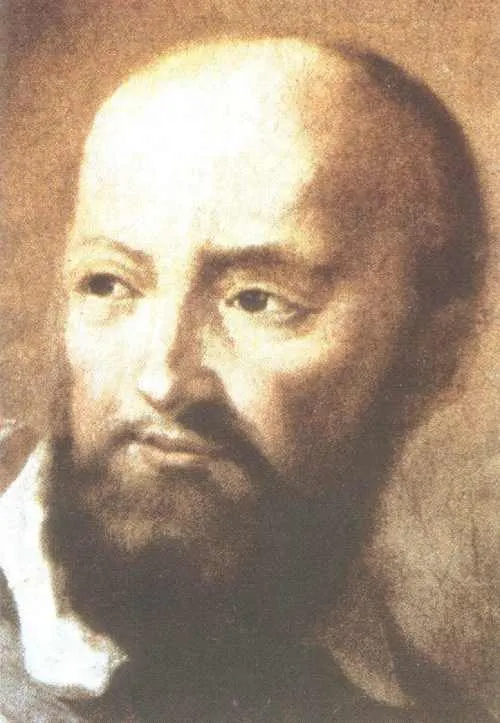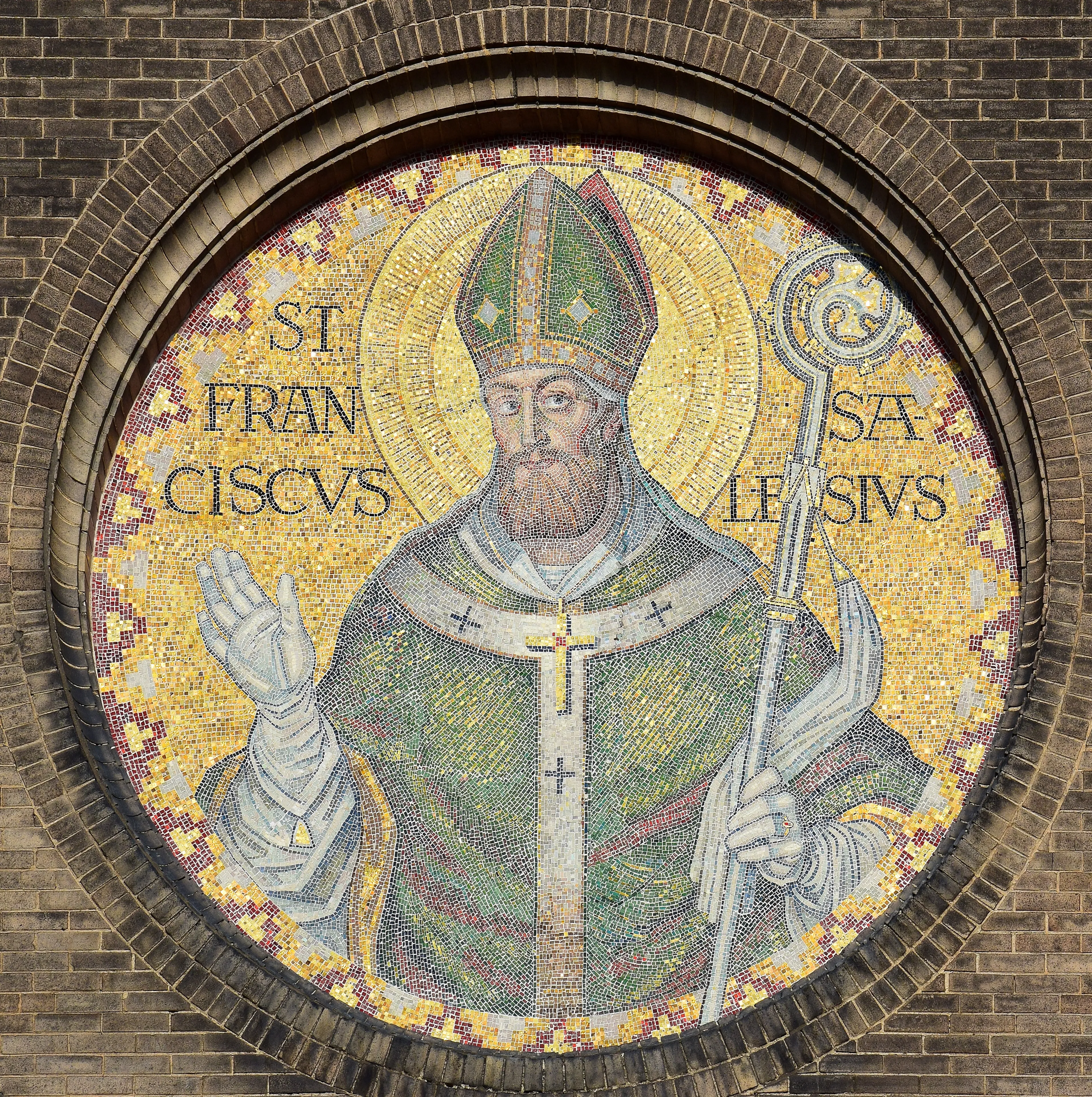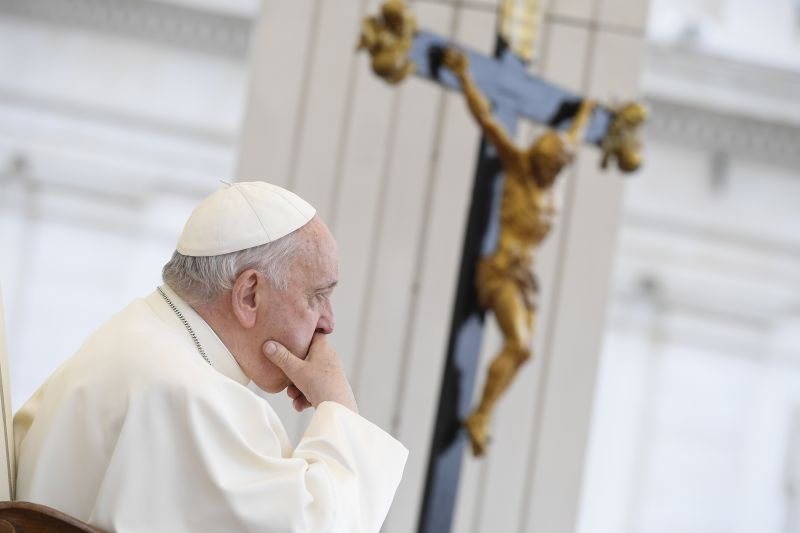
Rome Newsroom, Dec 10, 2022 / 03:30 am (CNA).
There have been reports that on Dec. 28, Pope Francis will publish an apostolic letter on St. Francis de Sales, the priest and bishop who taught against errors and encouraged holiness for all.
Dec. 28 will mark the 400th anniversary of St. Francis de Sales’ death in 1622. And though Pope Francis has said little about the saint until now, an apostolic letter would be an excellent opportunity for the pope to re-propose to the world this “model of meekness,” as he called him in January 2018.

Here are some things to know about St. Francis de Sales:
Gentleman saint
St. Francis de Sales was a gentleman by birth and education, but that is not what earned him the nickname of “the gentleman saint.”
The saint earned that title through his reputation for gentleness of heart.
He was the oldest child of a noble family in the Duchy of Savoy, now southeastern France. As a young man, he received an excellent education in preparation for a political career.
But his heart was set on practicing religious celibacy as a Catholic priest, despite his father’s desire for him to have an important career and marriage.
Francis de Sales was ordained in 1593 after signing over his title and succession to his younger brother. He was an intelligent and well-liked person. Besides studies in France, he completed his education in Padua, Italy, with doctorates in civil and canon law.
In 1602, de Sales was named bishop of Geneva, Switzerland, at the age of 35.
Throughout his life, one of the saint’s prominent qualities was his spiritual meekness — a popular quotation attributed to St. Francis de Sales is that “a spoonful of honey attracts more flies than a barrelful of vinegar.”
St. Francis de Sales wrote to laypeople about controlling one’s temper. He apparently had a lot of experience doing so, as his biographers say he was naturally strong-willed and easily angered.
Because of his own shortcomings, from childhood de Sales chose to focus on practicing the virtue of meekness.

Patron saint of all writers
One well-known fact about the saint is his patronage of journalists and writers. But the bishop of Geneva has only officially held this title for 100 years.
In January 1923, Pope Pius XI marked the 300th anniversary of Francis de Sales’ death with the encyclical Rerum omnium perturbationem (“the disturbance of all things”).
With the letter, Pius XI officially proclaimed St. Francis de Sales “the Heavenly Patron of all Writers.”
The saint earned this title because of his spiritual writings, including two books that are still widely read today: “An Introduction to the Devout Life” and “Treatise on the Love of God.”
“It would be impossible to exaggerate the value of his books and pamphlets” in encouraging holiness, Pope Pius XI wrote about St. Francis de Sales in his encyclical. “These books ought to be distributed as widely as possible among Catholics, for his writings are easy to understand and can be read with great pleasure.”
As a young priest, de Sales volunteered to serve in the hostile Calvinist region of Chablais, Switzerland, a challenging and dangerous assignment.
During this period, when no one would listen to his preaching, the saint took to writing and distributing leaflets refuting the heretical teachings of John Calvin and spreading the truth about the Catholic faith — another reason he is a model for Catholic journalists.
As many as 70,000 Protestants returned to the Catholic faith due to St. Francis de Sales’ dialogue, preaching, and religious tracts.
Founded a women’s religious order
Francis de Sales was friends with another canonized saint, Jane Frances de Chantal. Together they started a women’s religious community, the Order of the Visitation of Holy Mary, in Annecy in 1610.
De Sales and de Chantal wanted to start a community open to older women and women unable to join more austere orders.

“The desire,” according to the order, “was ‘to give to God daughters of prayer’ who would honor our Lord in his hidden life by practicing the two virtues dearest to his heart — humility and gentleness.”
“What is the special spirit of the Visitation?” Francis de Sales wrote. “I have always judged it to be a spirit of deep humility before God and of great gentleness toward our neighbor.”
Feast day is Jan. 24
St. Francis de Sales’ feast day is not celebrated on the day of his death, as it is for many saints, but on the day his remains were buried in the church of the Monastery of the Visitation in Annecy, France, in 1623.
The bishop, only 55 years old, had died suddenly of a stroke while visiting Lyon, France, on Dec. 28, 1622.
Every year, the papal message for the World Day of Social Communications is published on the Jan. 24 memorial of St. Francis de Sales.
Benedict XVI and Pope Francis continued the tradition, started by St. John Paul II in 1986, of publishing the message on Jan. 24. However, the World Day of Social Communications was instituted nearly two decades prior, in 1967, by St. Paul VI.
Doctor of the Church
Francis de Sales was canonized by Pope Alexander VII in 1665, just over 42 years after his death.
More than 200 years later, in 1877, Pope Pius IX proclaimed him a Doctor of the Church.
“Both through his words and his writings, which will endure for all time, [St. Francis de Sales] struck down the sinister errors rising up at the time; he defended the faith; he put vice to flight; he improved standards of moral behavior; and he showed all that heaven was accessible,” Pius IX wrote in the apostolic letter Dives in misericordia Deus.
If you value the news and views Catholic World Report provides, please consider donating to support our efforts. Your contribution will help us continue to make CWR available to all readers worldwide for free, without a subscription. Thank you for your generosity!
Click here for more information on donating to CWR. Click here to sign up for our newsletter.





We read: “As many as 70,000 Protestants returned to the Catholic faith due to St. Francis de Sales’ dialogue, preaching, and religious tracts.”
Yours truly recalls reading an early and authentic bio of de Sales (early 18th century), which explained why he was so successful in the number of conversions. Two things! In addition to (a) his welcoming meekness (in contrast with Calvinist vitriol), ALSO (b) he clarified the real doctrines of the faith, having in his hand the recently supplied Catechism of the Council of Trent.
Wouldn’t hurt if the Germans, and others in high places, were more interested in celebrating the real Second Vatican Council and its new Catechism rather than textually abusing and undermining both.
A tale of two men named Francis. One a pillar of godliness, the other: Fill in the blanks!